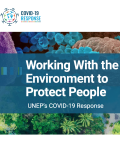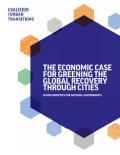
This document describes four response points from UNEP on COVID-19, and outlines their ambition to support member states and the incorporation of the environment into response efforts.
Chinese asset managers have made progress in expanding their ESG research capabilities, and onshore Chinese companies have increasingly been included in global benchmarks.
The report describes the two main driving forces for the development of responsible investment and ESG integration in China: top down policy pushing for green growth, and globalisation, which opens China up to scrutiny from international investors. Additionally, a third pressure is proposed: that ESG can be a source of alpha and better returns.

This resource (written in French) is a comprehensive report discussing the performance of the 88 states and governments in L'IOF (Organisation Internationale de la Francophonie) within the global green economy.

This paper explores seven priorities for national governments, as well as three cross-cutting measures, which can yield substantial economic dividends, rapidly create and protect millions of jobs for vulnerable populations and deliver quick and durable health and environmental benefits for citizens, all whilst contributing to long-term urban resilience.
This study comprises intensive data collection, including mapping and on-ground assessment of mangrove resources, detailed household surveys on how community members use mangroves and what incomes they receive, accumulation of knowledge of costs for restoration, and management activities by governments and non-government organizations.
